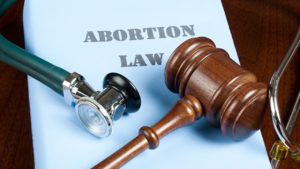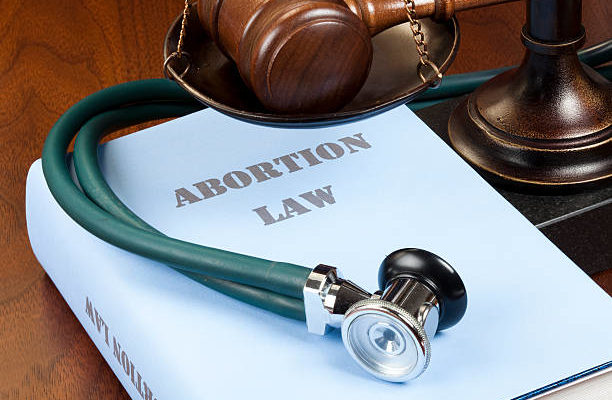
Abortion is still contained within the criminal code in New South Wales, at sections 82 to 84 of the Crimes Act 1900. In contrast, in all other states around Australia, abortion is regulated as a healthcare procedure.
While abortion is legal in NSW under certain conditions, women are not entitled to abortion on demand. Criminal legislation is rarely used to prosecute women or doctors; instead, it is much more likely to discourage or prevent women from accessing affordable and timely abortions that would be legal in other Australian jurisdictions. Aside from the restrictive legal framework, the policies and procedures governing legal abortions in NSW create intersecting barriers that disproportionately affect women from rural, low socioeconomic, and marginalised communities.
WHAT MAKES AN ABORTION ‘UNLAWFUL’ UNDER CURRENT LAW?
According to the NSW Crimes Act 1900, unlawfully procuring an abortion is a felony punishable by up to ten years in prison, and unlawfully providing “any drug or noxious thing, or any instrument or thing whatsoever” for the purpose of procuring an abortion is a felony punishable by up to five years in prison.
In New South Wales, an abortion is only legal if the woman’s doctor believes it is necessary to avoid a serious danger to her life or physical or mental health, taking into account economic and social factors as well as medical ones, and the risks of the abortion are not out of proportion to the danger to be avoided. While cases of illegal abortions are rare, the case law that does exist emphasises that the’reasonable belief’ in the necessity of the abortion – not the women’s – is required for the act to be lawful.
While prosecutions are uncommon, criminal legislation is a significant barrier for both service providers and women. While the legislation permits abortions in certain circumstances, these are limited and can be interpreted and applied differently by medical practitioners with varying levels of interest in women’s autonomy.
THE MEDICAL MODEL AND DOCTORS AS CONSCIENTIOUS OBJECTORS BEYOND DE-CRIMINALISATION
While some practitioners may try to support women’s autonomy through existing policies and legal frameworks, not all women have access to such helpful providers.
Women in rural areas, for example, may have to rely on their local GP as their first point of contact, particularly if they are unaware of the availability of specialist family planning and reproductive health services outside of their immediate area. According to one study, the conscientious objections of local conservative GPs made the referral process particularly stressful for some women. One woman in New South Wales reported seeing five doctors before receiving a referral.
The policy on how doctors should handle their own conscientious objection to abortion is contentious. In general, legislation recognises doctors’ right not to provide a treatment or procedure to which they object morally.
COMPOUNDING OBSTACLES
Abortion is currently available in NSW primarily through private clinics in Sydney and some regional areas, with limited public provision. Women who are refused local assistance or denied legal access may travel regionally or interstate to obtain an abortion. However, there are significant economic costs.
According to the NSW Pro-Choice Alliance, abortion laws are the single most significant barrier to abortion access and reproductive choice in NSW. These laws disproportionately affect women in lower socioeconomic and marginalised communities, as well as those living in rural and regional areas.
PARADOXES RELATED TO CHOICE
Because of these intersecting barriers, women seeking abortion in NSW are frequently already in positions of limited autonomy. Abortion on demand is currently illegal in New South Wales. Nonetheless, public opinion polls show that 70% of Australians believe abortion should be readily available. Not only is abortion decriminalised widely supported, but many people believe abortion is already legal and easily accessible to women.
Women are increasingly responsible for self-management of their lives, including family planning, in the face of widespread assumptions about the freedom of women’s “choices.” This contrasts with interconnected policies and practises that limit women’s ability to make such choices. The current abortion law and policy regime in New South Wales exemplifies the cultural paradox we’ve created around choice. Many women’s lived realities are at odds with the assumptions surrounding “free choice.” What does this imply for women who are routinely denied such a choice?
It is important to remember that while the proposed bill would legally protect women’s reproductive autonomy, many social and interpersonal barriers still prevent them from exercising it. Providing safe and legal abortions without the threat of criminal prosecution represents extraordinary progress and vindication for women who have fought for reproductive rights against NSW for decades. However, the Crimes Act is not the only barrier for many women.

